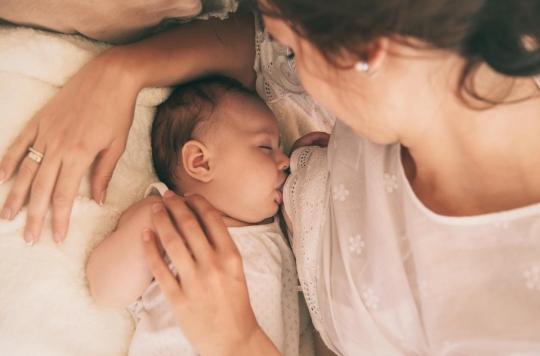A study of 1,800 species of mammals reveals that females nursing their young, and those of other females, tend to have larger litters.

- Breastfeeding is one of the most effective ways to preserve health and ensure child survival.
- The WHO recommends that children start breastfeeding within one hour of birth and that they are exclusively breastfed for the first 6 months of life.
- Despite these recommendations, in France only 68.1% of all babies born each year are breastfed at birth. At six months, this rate drops to 22%.
Breastfeeding her children, but also those of other women, could be a fertility booster. This is, in essence, what a new study published in the Proceedings of National Academy of Sciences. This has reviewed more than 1,800 species of mammals. The results obtained underline that the females who practice “allolactating” (“allonursing” in English), that is to say, who feed their own young but also those of other females of the same community, would tend to have larger litters.
From small to larger weight
It was Paola Cerrito, from the University of New York (United States), who carried out this work with her colleague Jeffrey Spear, after listening to her grandmother’s story. The latter would have revealed to him that women helped feed other women’s babies during the Second World War, “at a time when they were all malnourished”.
Researchers have developed models to assess the effects of different types of parental help on the reproductive performance of wild and domesticated mammals. In particular, they used previously published data that included 1,806 species representing all orders of placental mammals.
They found that domestication and shared parenting, including father carrying the infant, had a positive effect on litter size and offspring weight. Domesticated species also had offspring 68.2% heavier than those of wild species.
Larger spans
But the most important effect is related to shared breastfeeding. Species in which this behavior has been observed produced 83.1% more weight offspring in a year than that of single-mother-fed pups.
Domestication and allolactating had consequences not only on the weight of the young, but also on their number. For Paola Cerito, these results suggest that, in all mammalian species, from rodents to primates, shared breastfeeding therefore benefits the whole community.
According to Jeffrey Spear, this study also provides insight into the biological benefits of the cultural practice of breastfeeding in human societies. “Our research has shown that when mammals [partagent le lait], this helps to maximize total reproductive output. In human terms, that means more infants are surviving.”he sums up the site New Scientist.
For Sandra Heldstab, from the University of Zurich (Switzerland), the conclusions of this “very cool study” are surprising because until now, no work had found any reproductive advantage to shared breastfeeding. She encourages further research that could determine the specific effects based on the amount of milk actually shared in different species and cases.
.















